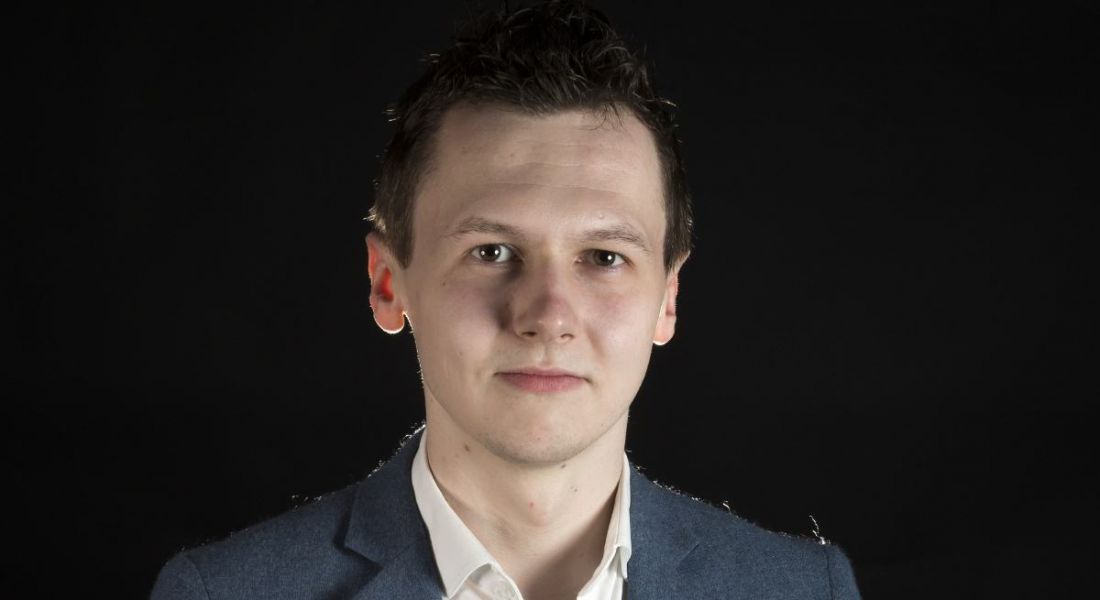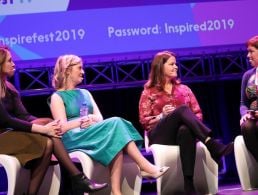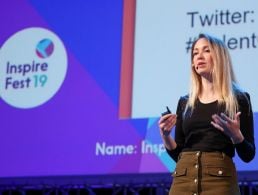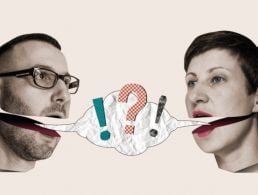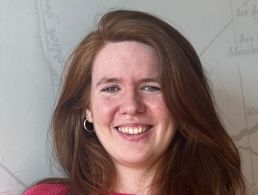Drawing upon his own experience as an autistic person, Adam Harris founded AsIAm, an organisation that is now the largest autism charity in Ireland. We found out more about the work he does in advance of his appearance at Inspirefest 2019.
Many of us will likely shudder at the memory of our final year second-level exams and the tense, claustrophobic lead-up to them. It’s difficult to forget the hours spent at the centre of a foxhole of your own making composed of books and past papers piled high, reading and re-reading the same information until your eyes felt stripped. It’s a lot to have on your plate but, evidently, wasn’t quite enough for AsIAm’s Adam Harris.
It was while he was doing his Leaving Certificate exams years ago that he decided to found his autism advocacy organisation, which has now become one of the largest autism charities in the country. Inspired by his own experience as an autistic person (identity-first language is, as Harris explains, preferred in the autism community), Harris wanted to correct what he saw as a generally well-intentioned society without the proper tools to fully understand autism.
“There was a lot of good will towards autism and people wanted to do the right thing,” Harris said. “Unfortunately, there wasn’t the understanding needed to meaningfully include autistic people. I wanted to change that by giving autistic people a voice and by educating society around how it could be more accessible for [them].
“Our vision, I suppose, is that every autistic person can be accepted as they are and can participate in every single aspect of Irish life. To achieve this, we need to change our attitudes and we need to make sure the way our society works is accessible.”
One of the key elements of inciting that change is re-imaging how autism is perceived in wider society. Hence the importance of steering subtle language changes in conference with the traditional charity and advocacy work that AsIAm does at all stages of the life cycle.
“We talk about [autism] as a ‘disorder’, but really it’s just a different way of seeing the world. We have to move towards seeing it as another form of diversity and inclusion [D&I] … Companies have come a long way on the D&I agenda but often, disability and neurodivergence are left behind.”
One of the major roadblocks to this is that autism is an ‘invisible’ condition. When both businesses and individuals are considering accessibility, they may have a slightly blinkered perspective. They may be inclined to only think about accessibility measures such as ramps and lifts which, while very important, are not the only structural changes that can be made for accessibility.
“In day-to-day life, autistic people face access barriers in terms of communication, predictability and control, sensory processing and the judgement of other people. Stigma is a huge part.”
AsIAm has multiple initiatives currently on the go, such as its close partnership with Specialisterne. Both organisations work together to help autistic people better access the working world and help employers, in turn, access the unique perspective that autistic people can bring to a business. “Both of us share the vision not only that every autistic person should get the opportunity to work, but that all of society needs autistic people in the workplace because we see and do things differently, and this can add huge value.”
As Harris points out, people may be inclined to underestimate the barriers autistic people face when trying to participate in society. “Autistic people want to do the same things everyone else can do – they want to go shopping, they want to stay in hotels, they want to go out for dinner – but often these day-to-day activities that we take for granted can be hugely challenging for people on the spectrum.”
This is what inspired a different partnership, this time with grocery store chain Supervalu. Shopping can be a particularly stressful sensory experience for people on the spectrum. The combination of crowded spaces, bright lights and loud, unexpected noises may lead to overload, so the ‘quiet time’ initiative minimises these factors. Lights are dimmed and crowds more tightly controlled. People can even go online and preview the sounds they may encounter during the shopping experience – the exact dings of checkouts being opened, the announcements that may come on – and inure themselves in anticipation.
Harris is quick to point out, however, that this doesn’t just help people with autism. Those living with dementia or chronic migraine sufferers – anyone who may run into difficulty with sensory processing, essentially – can really benefit from these kinds of schemes. As Harris explains, everybody wins when the world is opened up to more people and, as such, these changes shouldn’t be merely incidental but instead incorporated into universal design.
Harris is due to take to the Inspirefest stage in May 2019 to further outline his vision, yet that is not the only contribution that he, or his organisation, is due to make. There will also be a quiet space set up at the conference.
“One of the things that’s really important to realise is that many autistic people are drawn to the tech world. It’s really important that we celebrate that but that we also ensure that celebrations of that such as Inspirefest are accessible.
“It will not only help delegates have a more relaxing experience but will also serve as a visual reminder to people that diversity does include the autism community and that there are small things we can all do to be more accepting.”
Inspirefest is Silicon Republic’s international event celebrating the point where science, technology and the arts collide. Tickets for Inspirefest 2019 are available now.
